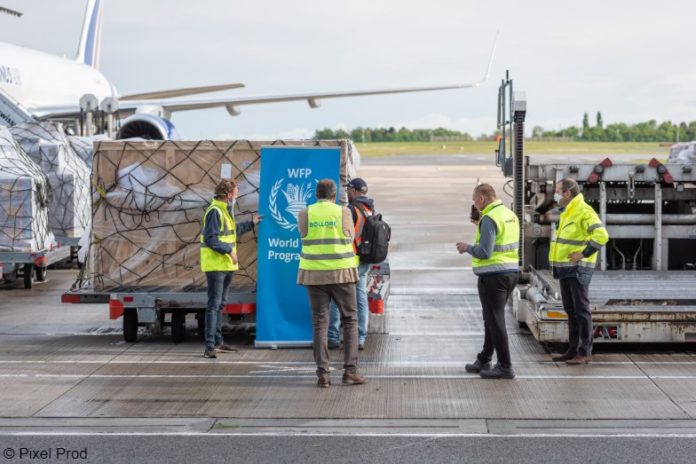Belgium’s Liège airport has been selected to be part of a network of United Nations global logistics hubs that will deliver medical and humanitarian material. The first shipment left Belgium on April 30 and deliveries are now being ramped up.
The network will ensure the delivery of vital medical and humanitarian supplies to developing countries at a time when commercial air transport is at a virtual standstill due to the Covid-19 crisis. The United Nations’ World Food Programme, which is coordinating these deliveries, announced the strengthening of these operations.
The first flight departed Liège on April 30, carrying almost 16 metric tons of medical cargo and personal protective equipment, including masks and gloves, on behalf of UNICEF and the International Committee of the Red Cross. The cargo was destined for Burkina Faso, Ghana and the Republic of Congo.
The breakdown of global supply chains, the collapse of commercial air travel and border closures have hindered aid agencies and health authorities who are struggling to get supplies to fragile settings.
“The window of opportunity to get medical and humanitarian equipment into Africa to curb the pandemic is closing fast,” said Amer Daoudi, WFP’s COVID-19 Response Director. “Our global logistics support system is up-and-running, and this delivery marks the first of many cargo shipments we will fly to all corners of the globe,” he added.
Great pride
Nine airports across the world were chosen to be part of this network. The other airports are in Accra, Addis Ababa, Guangzhou, Johannesburg, Panama, Shanghai, Subang and two in Dubai.
For Liège airport, their selection is a source of “great pride”, Christian Delcourt, Communications Manager at the airport told UNRIC.
“We are very happy, very proud. In such a crisis, aviation has a fundamental role in the logistics chain,” he said.
Liège airport, the only European airport in this network, was chosen for several reasons, according to Delcourt. Geographically, it has a central position and can reach several tens of millions of people very quickly. The airport’s main activity focuses on cargo, meaning it has very few passengers, and it is open 24 hours a day, 7 days a week. The airport also has a long history of transporting humanitarian material.
“Many organisations know we are able to respond very quickly to their needs,” Delcourt explains.
WFP expects to transport the equivalent of 37 Boeing 747 planeloads over the next six weeks from China and Malaysia to 130 countries around the world. Once the service is fully up and running, as many as 350 cargo and further 350 passenger flights could fly every month.
Additional links:


